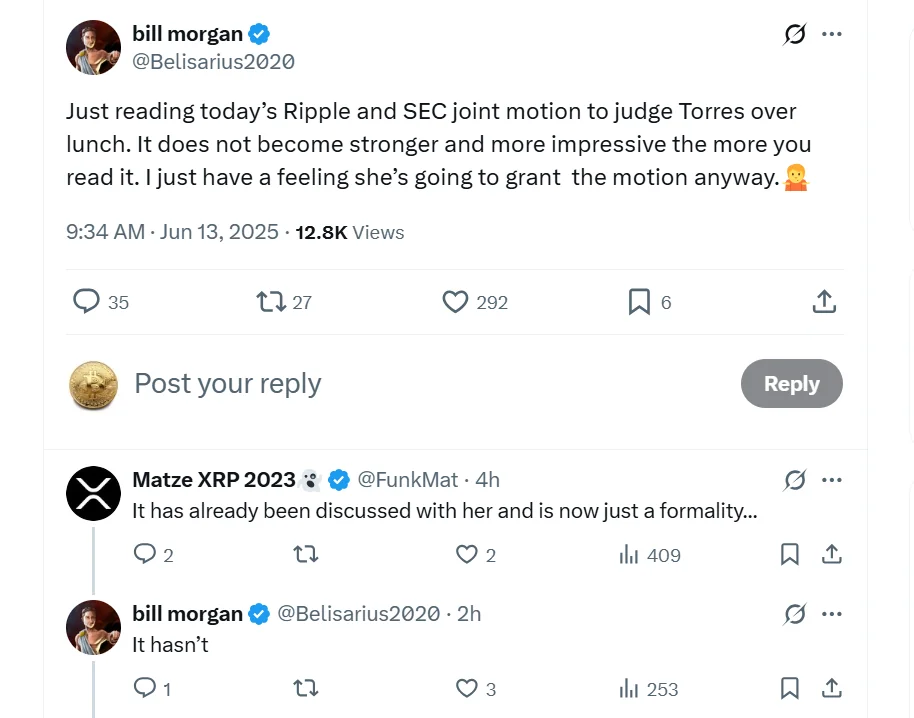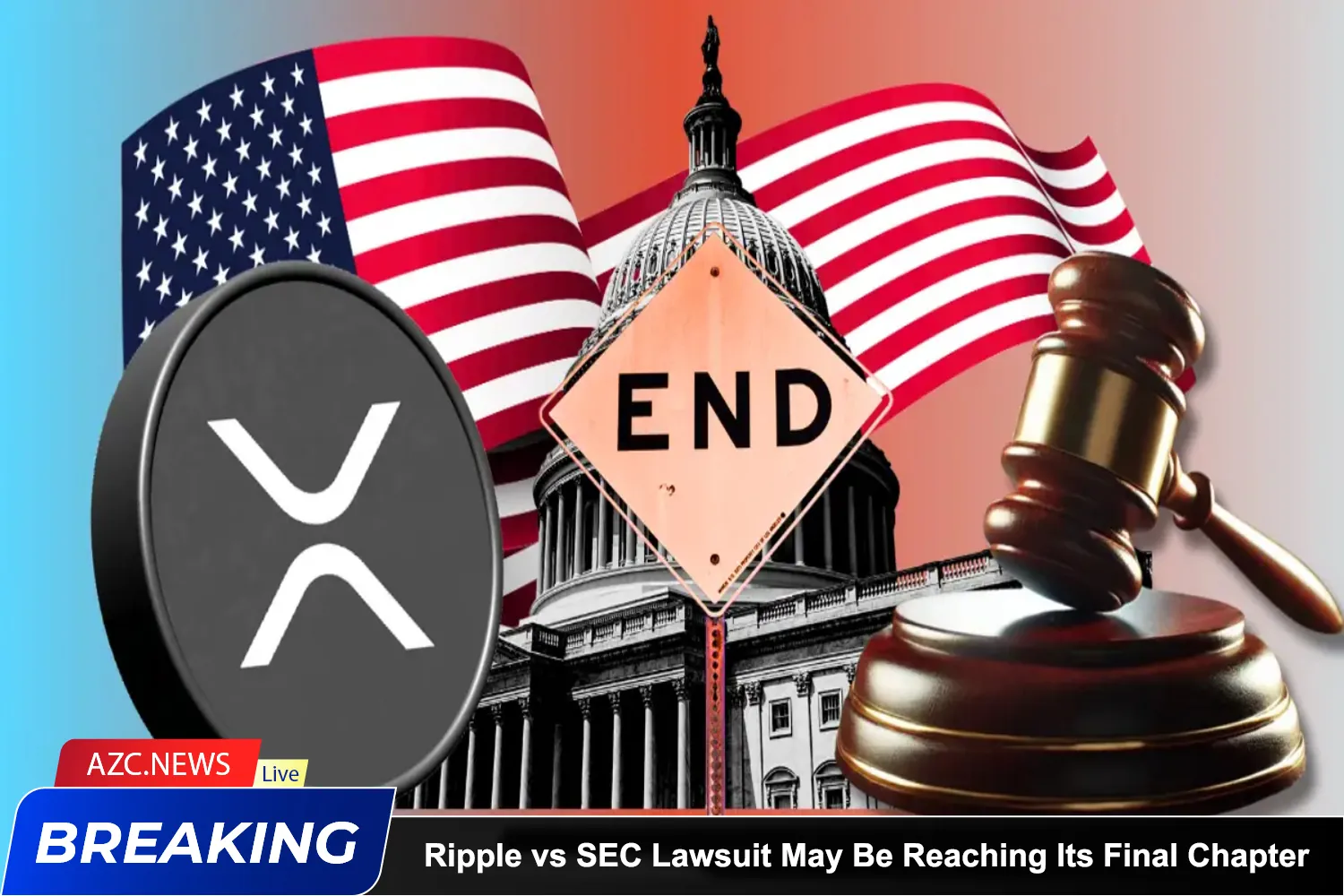The ongoing lawsuit between Ripple and the U.S. Securities and Exchange Commission (SEC) has taken a new turn as both parties jointly submitted a motion to the court. Lawyer Bill Morgan believes that Judge Analisa Torres is likely to approve the motion, despite his own reservations about its content.
In a post on social media platform X, Bill Morgan shared his reaction after reviewing the joint motion: “The more I read today’s joint motion from Ripple and the SEC, the less impressive and convincing it seems. Still, I have a feeling Judge Torres will approve it.”
On June 12, Ripple and the SEC jointly petitioned the Manhattan District Court to lift the existing injunction in their years-long legal battle. They also requested the release of a $125 million civil penalty currently held in escrow. Under the settlement proposal, $50 million would go to the SEC, while the remaining amount would be returned to Ripple—potentially bringing the ongoing appeal and cross-appeal processes to an end.
Joint Motion Is Key to Ripple vs SEC Settlement

In a more detailed analysis, Bill Morgan emphasized that Judge Torres’ decision on this joint motion is crucial for resolving the Ripple vs SEC case. He explained: “Relief from the judgment is a necessary condition for settlement.”
According to Morgan, both parties cited legal precedents allowing a judgment to be modified under exceptional circumstances to enable settlement and avoid lengthy appeals. If Judge Torres denies the motion, the current settlement would become unenforceable, and the lawsuit would continue with ongoing appeal and cross-appeal proceedings.
Some Experts Remain Disappointed
Echoing Morgan’s sentiment, lawyer Fred Rispoli also voiced his disappointment with the motion’s content. He argued that Ripple and the SEC missed the opportunity to present a more comprehensive filing that addressed the SEC’s regulatory shortcomings in the crypto space, included statements from SEC commissioners, and offered a degree of acknowledgment from Ripple for its alleged violations.
Nonetheless, Rispoli acknowledged that, from a legal standpoint, both parties have provided sufficient grounds for the court to grant the motion. However, the ultimate decision rests with Judge Torres’ discretion.






